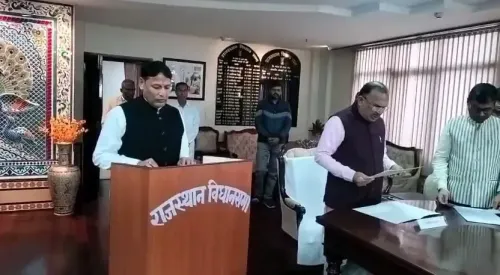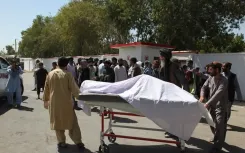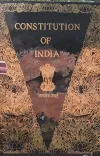Is Bangladesh Facing an Alarming Rise in Violence Against Women?

Synopsis
Key Takeaways
- 663 women were raped in Bangladesh in the first nine months of 2025.
- The UN established November 25 as the International Day for the Elimination of Violence Against Women.
- Activists warn of a growing crisis driven by impunity and deteriorating law and order.
- The reported figures may only represent a fraction of actual cases.
- Urgent reforms are needed to combat the culture of violence.
Dhaka, Nov 25 (NationPress) As the globe commemorates the International Day for the Elimination of Violence Against Women on Tuesday, new statistics reveal a disturbing truth in Bangladesh, where 663 women were raped in the initial nine months of 2025, as reported by local media.
The United Nations General Assembly established November 25 as the International Day for the Elimination of Violence Against Women in 2000, aiming to raise awareness about all forms of violence against women.
The figures, published by the Dhaka-based Human Rights Support Society (HRSS), highlight a growing crisis that activists warn is propelled by impunity, a decline in law and order, and the failure of the interim government led by Muhammad Yunus to adhere to its commitments under international women's rights agreements, including the Beijing Declaration.
In an interview with the prominent Bangladeshi daily, Dhaka Tribune, human rights advocate Sultana Kamal asserted that the documented cases represent merely a small portion of the extensive violence occurring across the nation.
"We only hear about rape and torture when they make it to the media, often following a murder or an exceptionally brutal case. There are numerous instances of violence that remain unreported. What we are witnessing is already a horrific scenario," she expressed.
Sultana emphasized that the rising incidence of rape and sexual violence demonstrates a blatant disregard for women's rights and dignity.
"In a sovereign nation where we cherish our culture and history, over six hundred women have been raped in just nine months. This reflects an extreme lack of respect for women—by families, society, and the state," she remarked.
Pointing out that the culture of impunity has encouraged offenders, Sultana stated, "There was once a belief that criminals would face consequences for such actions. That belief has vanished. When women are subjected to torture without repercussions, violence persists. It is an attack on women's dignity and the sanctity of their bodies."
Additionally, Fawzia Moslem, President of Bangladesh Mahila Parishad, cautioned that the increase in violence against girls is particularly concerning.
"Throughout many months, more girls are tortured than adult women. This highlights the severity of the situation. Law and order have deteriorated to such an extent that anti-women sentiments are becoming normalized," she noted.
Fawzia criticized the Yunus-led interim government for its inaction, which she contends has emboldened "anti-women forces and terrorists" within the country.
"Anti-women propaganda has surged significantly in the past ten months. Society, education, and cultural practices must evolve. If not, halting these crimes will be exceedingly difficult," she warned.
Bangladesh has experienced a concerning rise in violence against women during the Yunus-led interim government, revealing the swift decline in the country's law and order.









